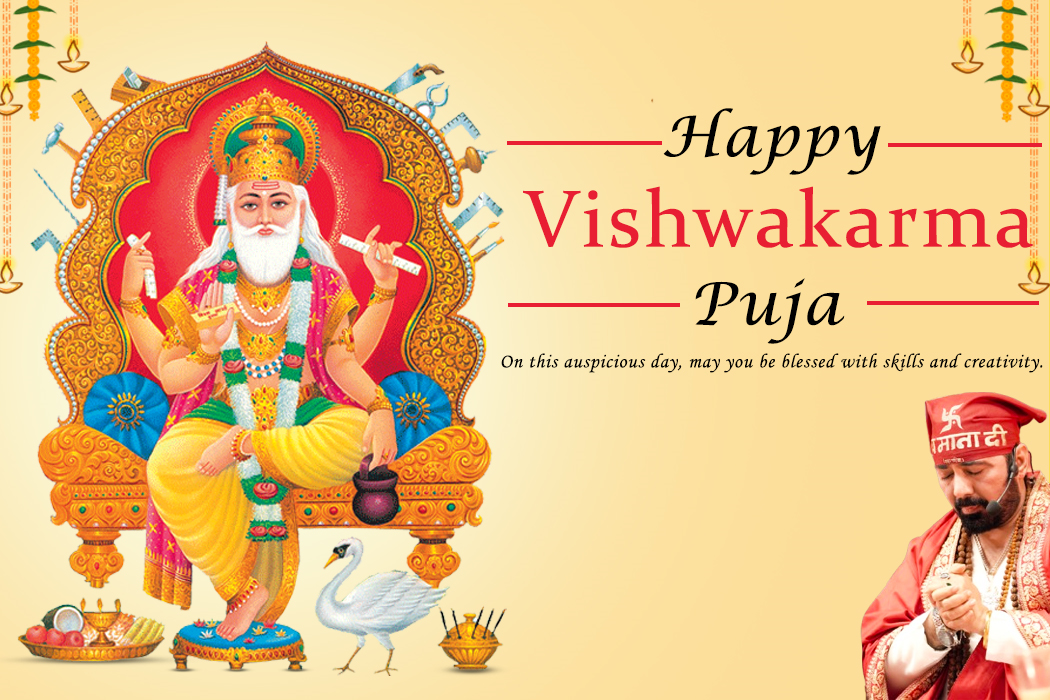Paras: Honoring the Divine Architect Vishwakarma

In Sanatan Dharam and Hindu Dharam, Vishwakarma, who is frequently regarded as the heavenly architect, has a prominent position. He is revered as the deity of engineering, architecture, and all other crafts and is regarded as the master artisan. The essence of Vishwakarma, his significance within the Paras setting, and how his teachings align with the Paras Parivaar's principles are all examined in this blog.
The Significance of Vishwakarma in Sanatan Dharam
In Sanatan Dharam, Vishwakarma is not only a deity but also a symbol of innovation and creativity. He is credited with creating a number of celestial weapons and architectural wonders, such as the legendary city of Lanka for Ravana. Reexamining Vishwakarma's teachings can encourage people to strive for excellence in their crafts, which is consistent with Hindu Dharam's tenets, in a world that is becoming more and more reliant on technology.
Key Contributions of Vishwakarma
Architectural Marvels: In Hindu mythology, Vishwakarma is credited with creating important constructions like:
- The city of Lanka.
- Indra's palace
- Numerous divine weapons
Symbol of Skill: As the epitome of workmanship, he inspires people to develop their abilities and make constructive contributions to society.
Cultural Impact: His legacy serves as the inspiration for a number of Indian festivals and customs, most notably Vishwakarma Jayanti, where craftspeople honor their abilities and ask for good fortune.
Celebrating Vishwakarma: The Paras Connection
In addition to denoting a valuable stone, the name "paras" also connotes quality and purity. In many respects, this is consistent with the attributes that Vishwakarma embodies. Through commitment and diligence, Vishwakarma turns undeveloped talent into polished expertise, just like Paras is said to turn base metals into gold.
The Role of Paras Parivaar
Promoting the ideals of Vishwakarma is greatly aided by the Paras Parivaar, or family of Paras. This community places a strong emphasis on education, skill development, and Sanatan Dharam-based cultural legacy. The Paras Parivaar helps to preserve old skills while modifying them for contemporary uses by creating an atmosphere that values creativity and craftsmanship.
Lessons from Vishwakarma for Modern Society
In today's fast-paced society, where technology frequently overshadows traditional talents, Vishwakarma's teachings provide significant lessons:
Embrace Creativity: People today should embrace their creative potential in a variety of professions, just as Vishwakarma used his imagination to create amazing monuments.
Skill Development: It is impossible to overestimate the significance of lifelong learning and skill development. People are encouraged to strive for expertise in their chosen skills by imitating Vishwakarma.
Cultural Heritage: Sustainable growth requires both innovation and adherence to cultural values. Hindu Dharam's teachings serve as a reminder to honor our heritage while moving forward.
Festivals Celebrating Vishwakarma
A well-known celebration that honors this celestial architect is Vishwakarma Jayanti. It serves as a reminder of the value of talent and creativity in our lives and is mostly observed by artisans and craftspeople.
Celebration Highlights
Rituals and Offerings: Rituals are carried out by devotees to ask for blessings for their equipment and work areas.
Community Gatherings: Artists gather to honor their trade, exchange ideas, and encourage cooperation.
Cultural Programs: A number of cultural events are planned to highlight Vishwakarma-inspired innovations and traditional skills.
Vishwakarma's legacy transcends time and culture, representing ideas that remain important today. By incorporating his teachings into our lives, whether via craftsmanship or invention, we may make a meaningful contribution to society while also respecting our Sanatan and Hindu heritage.
The teachings linked with Paras Parivaar inspire us to diligently cultivate our skills, ensuring that we not only honor our traditions but also lay the groundwork for future generations to grow creatively and spiritually. Embracing these principles can lead to a more peaceful living in which craftsmanship and spirituality coexist, echoing Vishwakarma's divine wisdom.